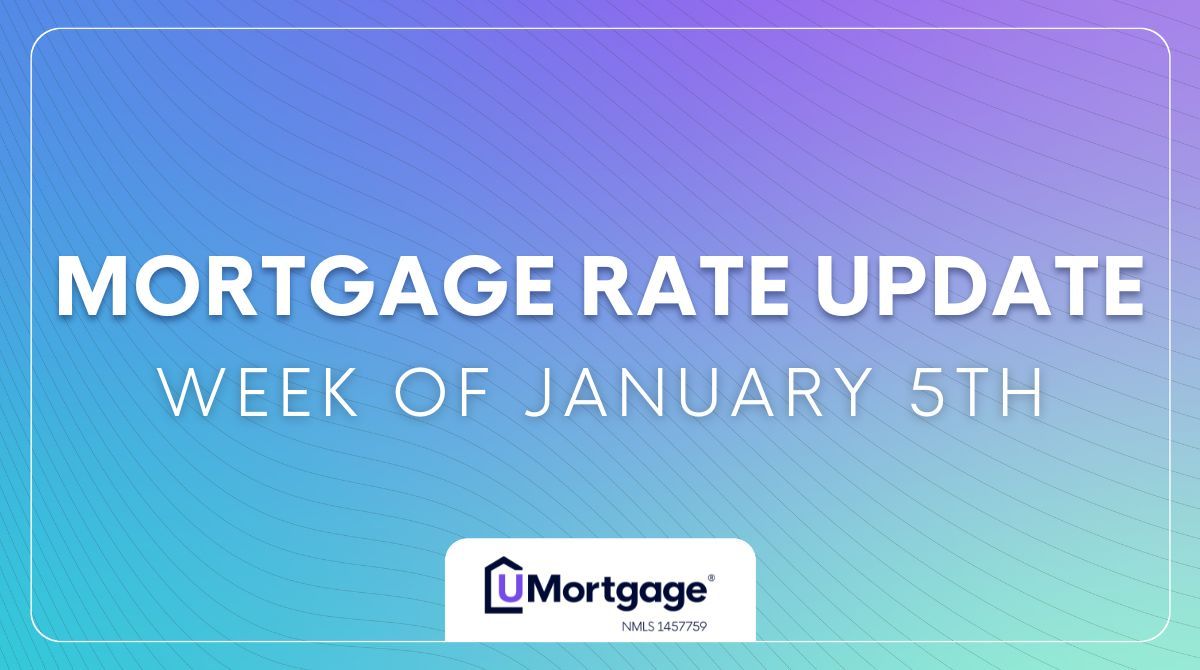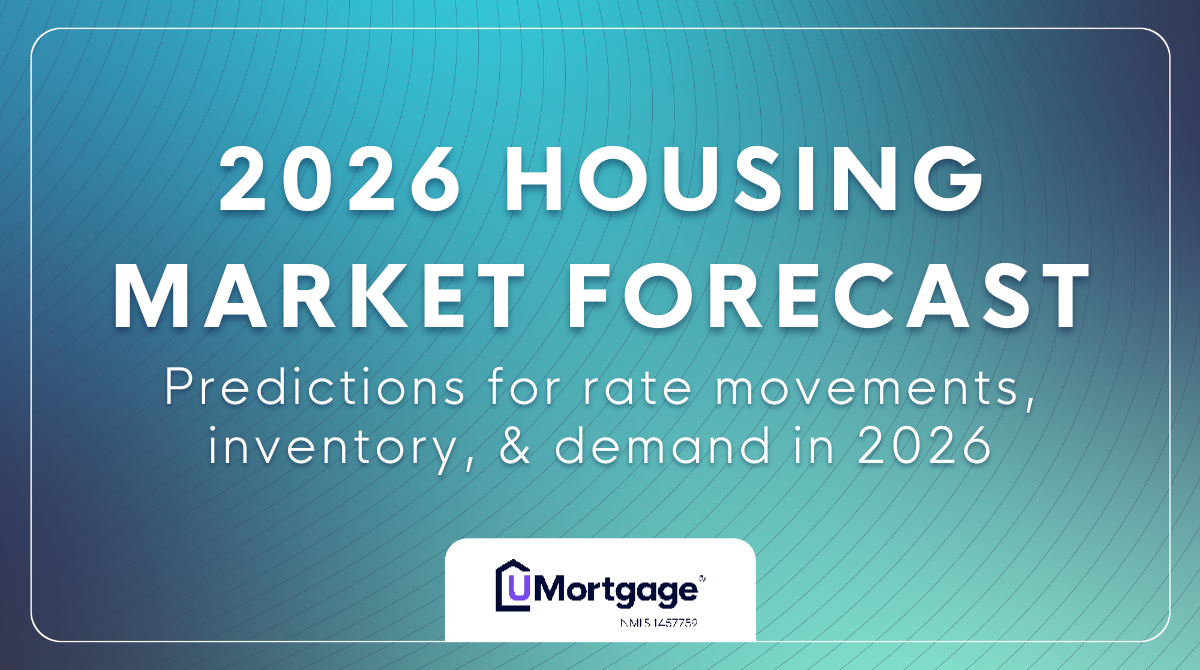

Gustavo Andrade
Meet Gustavo!
As your trusted UMortgage Loan Originator, my goal is to simplify the mortgage process to make your home loan experience easy to navigate! Please reach out so I can help start your home financing journey.
Serving Homebuyers In:
- Illinois
Mortgage Calculators
Monthly Payment
Find your monthly payment
What does a monthly mortgage payment look like for you? Get an estimate with some basic information.
Estimated Monthly Payment
The UMortgage mortgage calculators are for estimation purposes only. This is not a commitment to lend. For an exact quote based on your individual financial circumstances, please contact me.
Affordability
What is your budget?
Curious about how much you can afford to spend on a home? Use our calculator to get an estimate on your maximum budget.
Maximum Home Price
Maximum Monthly Payment
The UMortgage mortgage calculators are for estimation purposes only. This is not a commitment to lend. For an exact quote based on your individual financial circumstances, please contact me.
Refinance
Should you Refinance?
Refinancing might save money on your monthly mortgage payments, putting cash in your pocket. With some basic information from you, we can help decide if this is a good path for you.
Monthly Savings
Total Savings
The UMortgage mortgage calculators are for estimation purposes only. This is not a commitment to lend. For an exact quote based on your individual financial circumstances, please contact me.
VA Entitlement & Payments
Discover Your Buying Power With Our VA Home Loan Calculator!
If you are a veteran, an active-duty member of the military, or the spouse of a current or former military member, you are eligible to purchase a home with your VA home loan benefit! By using the calculator below, you can get a glimpse into your buying power and the estimated monthly payment of your VA loan as you start planning your homebuying journey.
Estimated Monthly Payment
Required Down Payment
Limit
$0
Entitlement Used
$0
Available Entitlement
$0
No Limit
How is my monthly payment calculated?
The UMortgage mortgage calculators are for estimation purposes only. This is not a commitment to lend. For an exact quote based on your individual financial circumstances, please contact me.
Your Mortgage Questions, Answered!

Housing Market Update | Week of January 5th
Mortgage rates have been relatively flat since the Fed cut the federal funds rate in early January, but that could change this week. The first full week of the year brings us a full plate of market-moving data, with a new batch of labor reports coming on Wednesday and Friday. Earlier this morning, two voting Fed Presidents acknowledged that the labor market is weak, but not weak enough to justify another cut. This week’s data will offer us a fresh perspective; we get the ADP private employment report and the Bureau of Labor Statistics' (BLS) Job Openings, Layoffs, and Turnover Survey (JOLTS) on Wednesday and the headline BLS jobs report on Friday. If anything can get rates to break below the tight range they’ve bounced between, it’s Friday’s jobs report, so that will be one to watch. Last Week's Mortgage Rate Recap Rates Were Flat Last week was a light week for new data, and mortgage rates remained flat as a result. It’s been much of the same since the Fed cut the federal funds rate at its December meeting; the 10-year Treasury yield has bounced between 4.12% and 4.19%. For us to see some meaningful movements, we’ll need to see the 10-year break beneath that floor. This Week's Mortgage Rate Forecast Rates Could Move The first full week of 2026 will bring us a fresh batch of labor market data. Mortgage rates barely budged when the BLS released its October and November labor data in mid-December. The fact that this report was delayed and largely incomplete was a significant factor in this stagnation. With the government shutdown no longer impacting the data collection process for these reports, Friday’s BLS report (and the ADP + JOLTS reports on Wednesday, to a lesser degree) could spark some movement again. As always, for mortgage rates to drop, the labor data needs to show more signs of weakness. Projections for Friday’s report expect 55,000 nonfarm payroll jobs created in December and for the unemployment rate to sink from 4.6% to 4.5%. If the nonfarm payroll figure comes in below 55,000 and/or the unemployment rate rises, we could see a slight drop in mortgage rates. Otherwise, expect rates to remain in this range. For real-time housing market insight or answers to any mortgage-related questions you have, click here to connect with a UMortgage Loan Originator near you!

2026 Mortgage Rate Forecast and Housing Market Predictions
Trying to predict the housing market is like trying to guess the weather. But understanding how mortgage rates react to other markets and, sometimes more importantly, other market sentiment can make it easy to navigate the market and time rate dips to your advantage. This was especially true for the market in 2025. Rates gradually declined throughout the year, but there were specific windows when informed buyers and homeowners took advantage of rates at or near annual lows. It’s likely to be true for the 2026 housing market as well, which is shaping up to be normalized and opportunity-driven rather than one that crashes or booms. Federal Reserve Policy and Mortgage Rates Why the market moves and why mortgage rates can feel jumpy at times One of the biggest misconceptions regarding the housing market is that mortgage interest rates only move when the Federal Reserve cuts or hikes the fed funds rate. In reality, mortgage rates move in a slow dance with other markets, especially the 10-year Treasury yield, and those markets react more to expected Fed policy than they do to actual Fed action. That’s exactly what we saw in 2025. Before the September and October Fed Meetings (which featured our first two federal funds rate cuts of the year), mortgage rates improved in the weeks leading up to those meetings, then became choppy or even moved higher after the decisions were announced. The two drivers that matter most for Fed policy and the expectations that move rates are inflation and the labor market. Inflation has risen slowly this year, but the Fed believes this is likely due to a one-time price adjustment resulting from President Trump's tariff policies. On the other side, the labor market has been a primary concern for the Fed. Its slow deterioration this year was cited as the primary reason behind each of 2025's three fed funds rate cuts. The Bureau of Labor Statistics (BLS) reported that the unemployment rate rose to 4.6% in November, the highest level since September 2021 and 0.6% since the start of the year. Monthly nonfarm payroll reports from the BLS also posted negative month-over-month growth three times in 2025, a first since 2020, with the December jobs numbers still to come and the October & November reports likely to be revised. In the Fed’s December 2025 press conference, Chair Jerome Powell acknowledged the weakness in the labor market, saying, “the labor market has continued to cool gradually, maybe just a touch more gradually than we thought,” in relation to rising unemployment and negative data from the BLS. Regarding the job market in 2026, he said there are several downside risks to the economy if these trends continue, which means forecasts today can change with the data we receive tomorrow. For weekly updates on the jobs data and how it impacts mortgage rates throughout 2026, make sure to watch UMortgage’s Monday Market Update every week at 10:30am ET. Will Mortgage Rates Go Down in 2026? The economic data and headlines that could make rates move this year So, understanding the internal and external factors that drive the markets, how are mortgage rates expected to move in 2026? Judging by the Fed’s dot plot, which is a chart where each “dot” represents an individual Fed policymaker’s projection for where rates could go, we should see overall stability with the potential for slight easing. A realistic working range is between 5.75% and 6.5% throughout the year, with relief appearing in waves rather than in a straight line. Those waves will provide windows to refinance to a lower monthly payment, get buyers off the sidelines, and slowly ease the lock-in effect. The biggest variable that can either drive or change these expectations is the Fed’s dual mandate: low inflation and a healthy job market. If the labor market continues to deteriorate, meaning unemployment rises and job growth slows faster, markets may start to price in more cuts. That can push rates down faster, but also create uncertainty for buyers who would rather take a “wait and see approach.” On inflation, if the one-time impact of tariffs fades as the Fed expects, or if tariff policy is rolled back/removed through political or legal channels, inflation should begin to cool, giving the Fed more room to ease. The final factor to watch in 2026 is the Fed itself. The voting composition will rotate in January, with four Fed policymakers assuming responsibilities from their colleagues. A new Fed Chair will lead the post-meeting press conferences starting in May as well; President Trump’s nominee is expected to be announced in January 2026. When markets expect new decision-makers to lean hawkish or dovish, expectations can shift, and mortgage rates can follow suit. So once again, this market will favor those who keep their finger on the pulse. Is 2026 a Good Time to Buy a Home? How a more stable market impacts inventory, home prices, and housing demand More stability with mortgage rates should get more homebuyers off the sidelines. Even if rates aren’t ‘low,’ stability brings confidence back to both sides of the transaction and helps people feel comfortable making big moves again. That’s the secret to unlocking the housing market. One of the most positive housing stories of 2025 was the rise in housing inventory. We saw 5-year highs for active single-family housing inventory, and during the market’s peak in the summer, inventory ran about 33% higher year-over-year. More inventory means a more balanced market, which is better for everyone involved. This should lead to fewer panic offers, more negotiation, and cleaner deals where buyers and sellers can actually meet in the middle. As affordability improves even modestly (especially if rates dip below 6% at points), more buyers will be able to get involved in the market. This is also where “move-up” buyers come back into play. When the payment math gets easier, those life-driven moves start to become more common. On home prices, the FHFA’s home price index showed year-over-year price growth at 2.2% nationally in Q3 2025. That slow-and-steady pace of growth is projected to continue, with Fannie Mae’s Home Price Expectations Survey suggesting around 2.8% growth in 2026. Just like in 2025, 2026 looks like a market that will favor the pros who can explain the market clearly and help clients act when it makes sense. If you want to stay plugged in as these trends develop, tune in to UMortgage’s Monday Market Update every week at 10:30am ET. We’ll break down the news and data that drive rates and help you sound like the expert your clients are looking for.

How to Consolidate Debt Using Your Home Equity
If you’re like many homeowners holding off on refinancing because you don’t want to lose your low mortgage rate, it might be time to look at the bigger picture. Yes, rates aren’t what they were a few years ago. However, credit card debt is at record highs, with average interest rates north of 20%. For households juggling thousands in revolving debt, it’s not the mortgage rate that’s crushing monthly cash flow; it’s those high-interest minimum payments. If you’re feeling financially squeezed, loan products like a cash-out refinance or home equity line of credit (HELOC) can help you take control by using your home’s equity to consolidate debt and reclaim hundreds, sometimes thousands, in monthly breathing room. Brian Cardenas, UMortgage Loan Originator, has been using these strategies to save his clients hundreds of dollars per month. “Money is one of the biggest stressors that we experience in our lives,” said Cardenas. “People are sitting on a ton of equity and a really low interest rate on their home. But they also have this albatross around their neck of this high-interest debt that’s just crushing them.” According to the Federal Reserve Bank of New York, total outstanding credit card debt stood at approximately $1.21 trillion by the end of Q4 2024 – a $45 billion increase from the prior quarter, marking a 7.3% year-over-year rise. At an average APR of 21.37%, as reported by the Federal Reserve in February 2025, that extra debt adds up fast. With a cash-out refi or HELOC, you’re using the money you’ve already invested in your home instead of taking on more debt with high-interest credit cards or personal loans. Here’s how each works, so you know your options before you commit. What is a Cash Out Refinance and How Does One Work? A cash-out refinance allows homeowners to replace their current mortgage with a new loan that provides extra funds by tapping into the equity homeowners have built in their property. Essentially, homeowners can "cash out" a portion of their equity to use as they see fit. This process works by allowing homeowners to borrow against their home equity, which is the difference between the home’s appraised market value and the remaining mortgage balance. By taking out a larger loan, the borrower receives the excess in cash after paying off the original mortgage. For a clearer picture of how this can work, use UMortgage’s Refinance Calculator to see what a cash-out refi might look like for you. See our Cash-Out Refinance loan product page to learn more. What is a HELOC Loan and How Does One Work? A Home Equity Line of Credit (HELOC) is a loan that lets you borrow against your home’s equity without replacing your existing mortgage. Think of it like a credit card that can be used, repaid, and used again over time. This flexible borrowing option is based on the difference between the home’s current market value and the outstanding mortgage balance. Homeowners can draw from the line of credit as needed, whether for home improvements, debt consolidation, or other significant expenses, and only pay interest on the amount they use. See our HELOC loan product page to learn more. Why You Should Consult with an Expert Before You Act Accessing your equity is just like any other mortgage product: there’s no one-size-fits-all option. That’s why it’s so important to consult with a mortgage expert before you pull the trigger. Working with a UMortgage Loan Originator takes out the guesswork; you’ll have someone in your corner who will present you with all your options so you can make an informed decision that works best for your financial future. “After crunching all the numbers, I found out that there were some considerable savings that we can present to this borrower and help relieve some of the financial burdens that they’re experiencing every single month,” said Cardenas regarding a client whose debt he consolidated earlier this year. “We’re just simply presenting options and letting the consumer decide which, if any of these options, is going to fit their needs best.” If you want to discover your options to consolidate your debt with your home’s equity, or learn more about HELOC rates, fill out this form to connect with a UMortgage Loan Originator in your area. They’ll reach out shortly after you submit to start the process.
Serving Homebuyers In:
- Illinois
